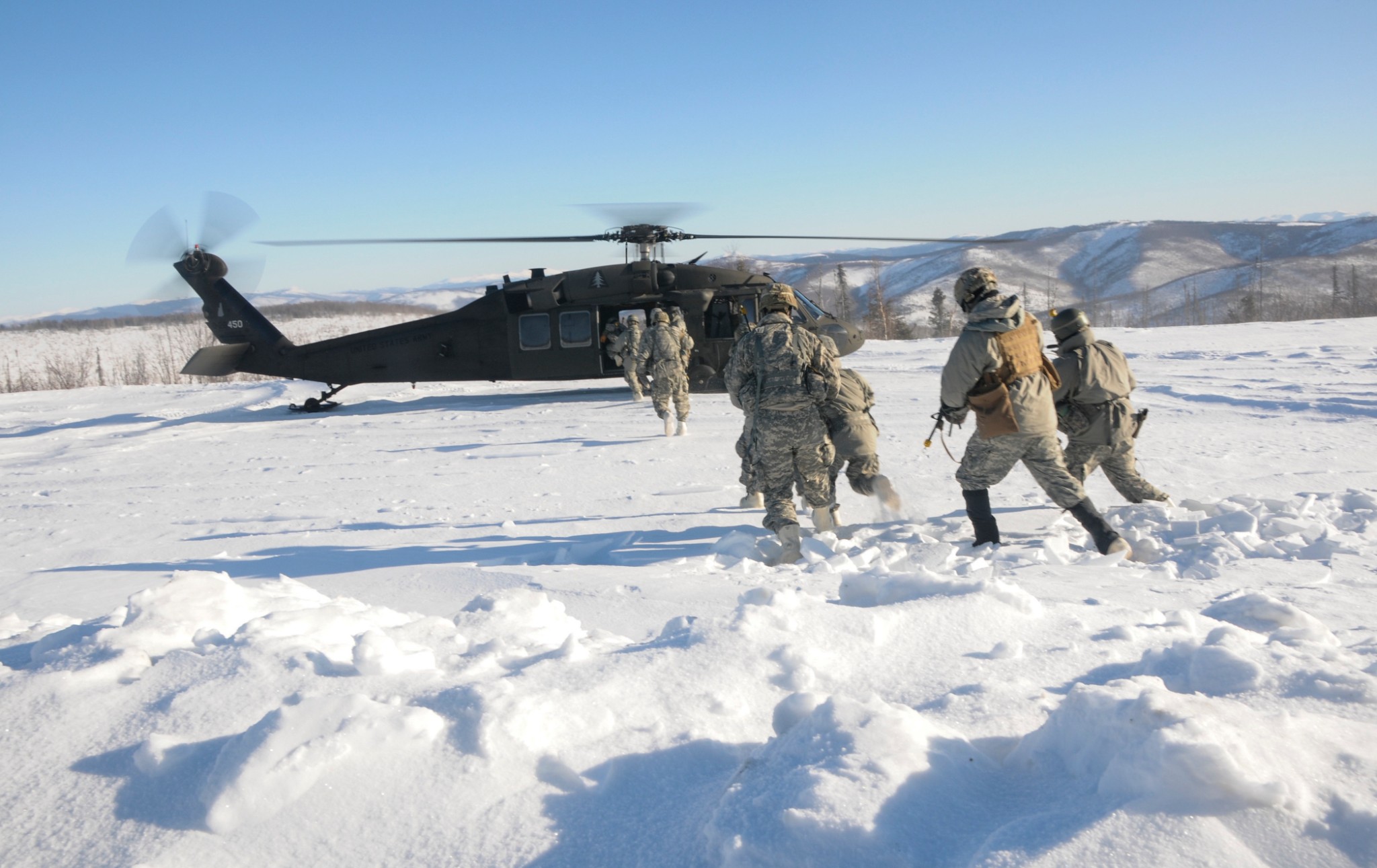 Arctic Edge 2020. Image c/o The National Guard on Flickr. CC BY 2.0.
Arctic Edge 2020. Image c/o The National Guard on Flickr. CC BY 2.0.
Event Recap: Climate Security in the Warming Arctic
—
On August 5, the American Security Project (ASP) co-hosted a public event on the opportunities and challenges of a warming Arctic. ASP President Brigadier General Stephen A. Cheney, USMC (Ret.) joined Commonwealth North’s Arctic Policy Study Group and the Institute of the North to discuss the national security implications of Alaska’s position on the frontlines of Arctic climate change. General Cheney has long engaged with Arctic issues and helped the State Department’s International Security Advisory Board draft a report on U.S. Arctic policy in 2016.
General Cheney opened the discussion by observing how much Arctic climate change has affected Alaska over the past two years. Last summer, Alaska recorded its hottest July on record. August 2019 brought erratic and unusual precipitation totals, as well as an extreme wildfire season. This year, Alaska experienced some of the warmest average May temperatures on the planet.
The warming Arctic presents both challenges and opportunities for Alaska, especially in climate and energy security. In terms of climate security, General Cheney noted Arctic climate change brings renewed geopolitical significance to Alaska. The state has always been of strategic importance to U.S. national security interests, and now a more accessible Arctic places Alaska squarely on the frontlines of great power competition in the Far North.
The challenge of a warmer Arctic stems from the need to establish rules of the road. As Arctic ice continues to melt and shipping lanes become increasingly accessible, the U.S. must work to uphold the rules and norms governing the use of polar waterways. General Cheney noted that, contrary to popular belief, the Arctic is not the “Wild West.” The United Nations Convention on the Law of the Sea (UNCLOS) is one of the international treaties providing the architecture for an Arctic legal regime. General Cheney advocated for the immediate U.S. ratification of the UNCLOS, a longstanding ASP position. Other climate security challenges include permafrost thaw and the destabilization of U.S. military infrastructure, the icebreaker gap between the U.S. and its competitors Russia and China, and the need for a deep-water naval port in Alaska.
With challenge, however, comes opportunity. Shifting Arctic geopolitics gives the U.S. the chance to reinvigorate its presence in the region and engage more constructively with the Arctic Council. General Cheney mentioned the recent appointment of James DeHart as the State Department’s U.S. Coordinator for the Arctic Region as a positive step in this direction.
In terms of energy security, General Cheney noted the challenge stems from developing Arctic natural resources both sustainably and peacefully. Extracting increasingly accessible fossil fuels will emit carbon dioxide and accelerate Alaska’s already rapid pace of warming. The global demand for fossil fuels is also at a record low due to the COVID-19 pandemic, creating an urgent need for Alaskan policymakers to diversify their state’s energy portfolio. There are ample opportunities for Alaska to diversify away from fossil fuels and toward renewable energies like wind and solar. For example, the Kotzebue Electric Association recently finished installing a 576-kilowatt solar farm north of the Arctic Circle in Alaska.
Much of the event’s Q&A portion focused on the questions of oil production and energy diversification. Oil underpins a large part of Alaska’s economy, and General Cheney acknowledged the concerns of those who saw equity issues in asking Alaska to cease fossil fuel production while other countries continue developing oil and gas. While ASP does eventually want to see a shift to renewables, General Cheney noted this would take some time. In the meantime, ASP supports the production of natural gas as a bridge fuel, or baseload fuel, until renewable storage capacity has improved.
The conversation concluded with a discussion of traditional Arctic security issues. By mandate, the Arctic Council does not consider questions of military security, and the audience asked about possible alternative fora to address these issues. General Cheney noted Arctic experts fall into two camps on this question: the first camp supports broadening the Arctic Council’s mandate to include military security, and the second camp wants to keep the Arctic Council strictly a forum for environmental and scientific issues. General Cheney strongly advocated for the benefits of military-to-military communication, and he suggested an Organization for Security and Cooperation in Europe model or regular meetings of Arctic defense ministers as possible alternatives to the Arctic Council.
Following the event, an opinion piece on the Arctic, written by General Cheney, ran in the Anchorage Daily News.
—
The American Security Project (ASP) has been following Arctic issues for years and recently launched an Arctic program. ASP’s Arctic research focuses on the challenges and opportunities of a changing Arctic and falls into three broad categories: great power competition, climate and energy security, and American competitiveness and leadership. Our most recent work in this area considers what we can expect from Russia’s upcoming Arctic Council chairmanship; how the U.S. should respond to China’s Arctic activities; and the economic, political, and security consequences of an ice-free Arctic.
To learn more about ASP’s Arctic research, visit our website.





